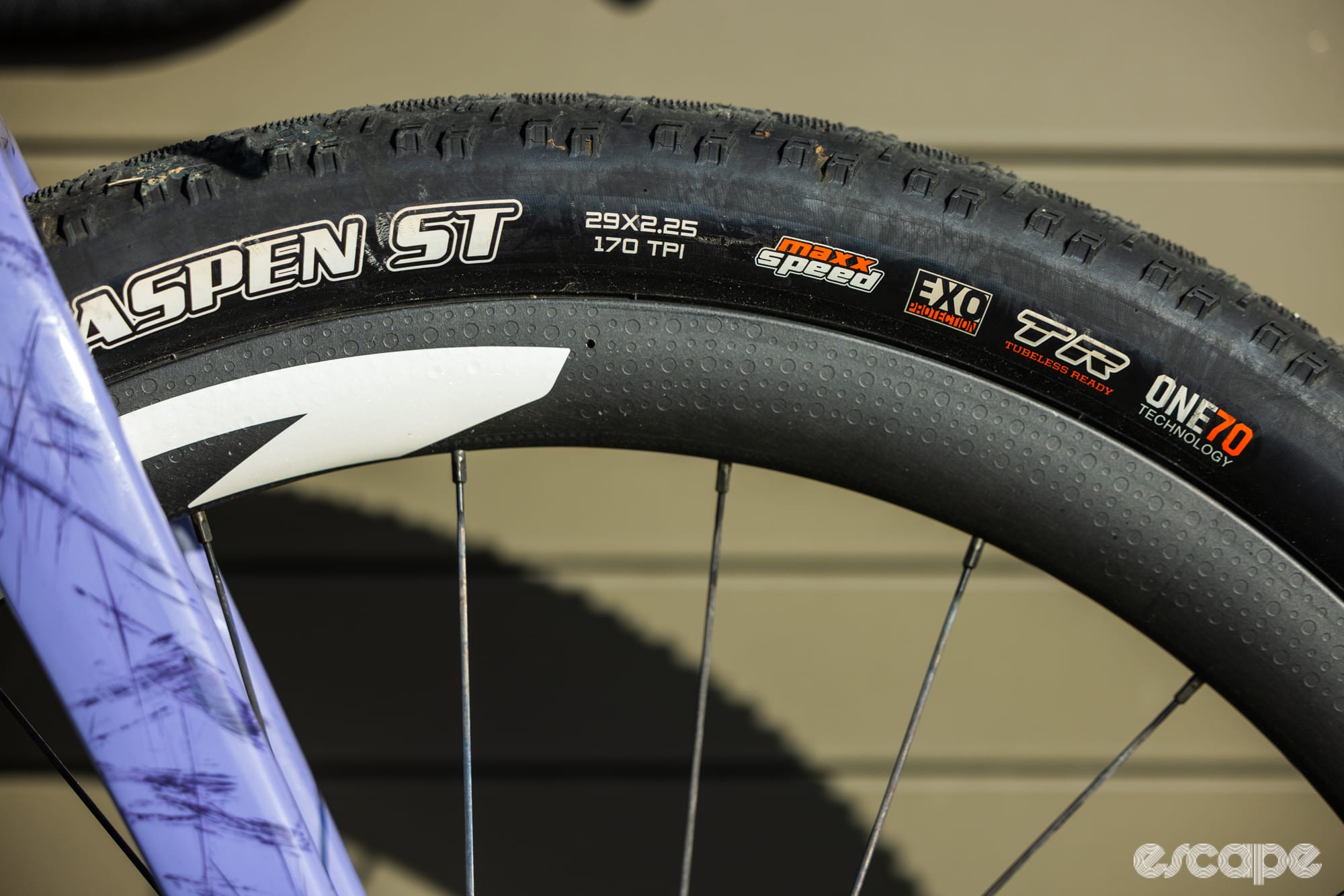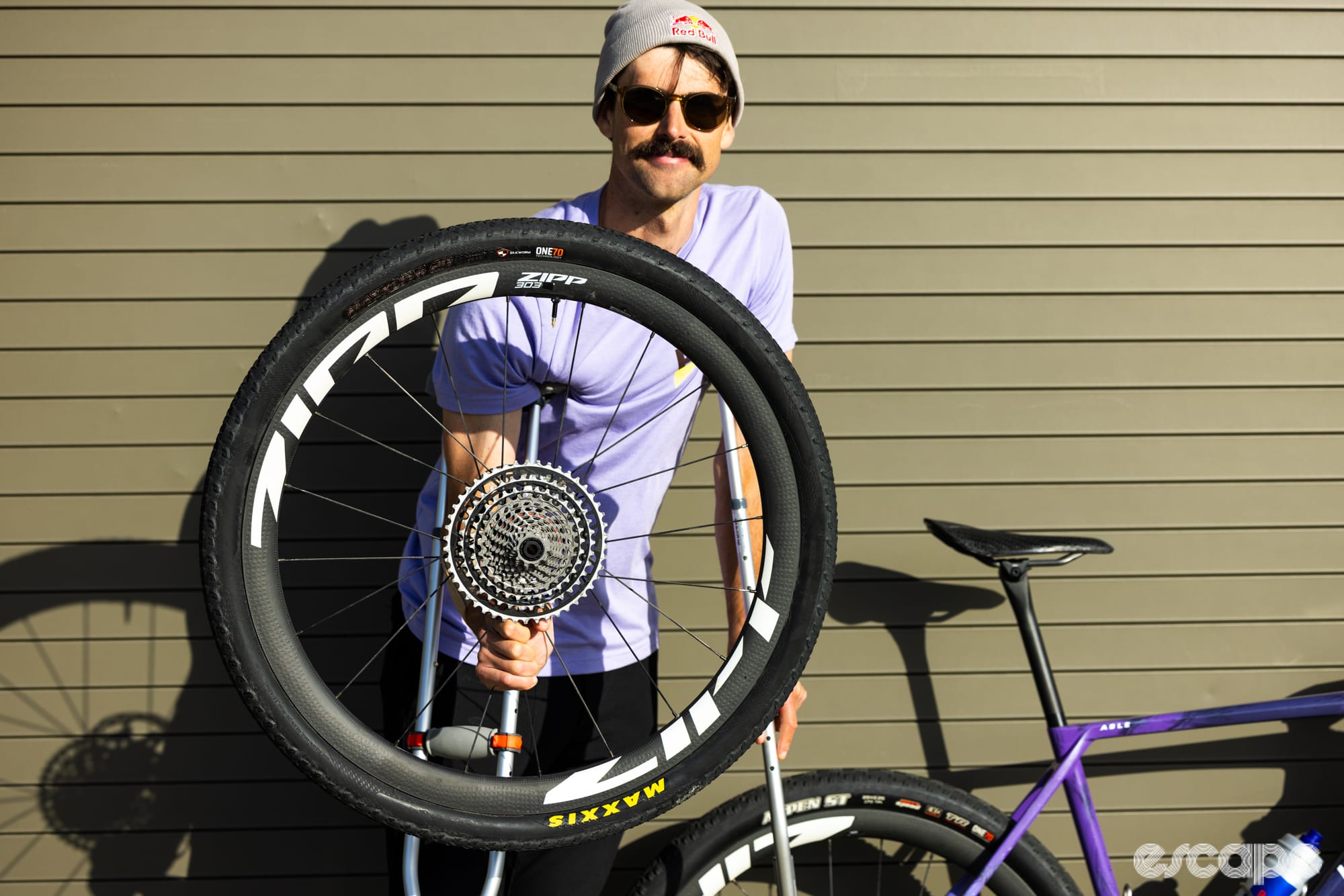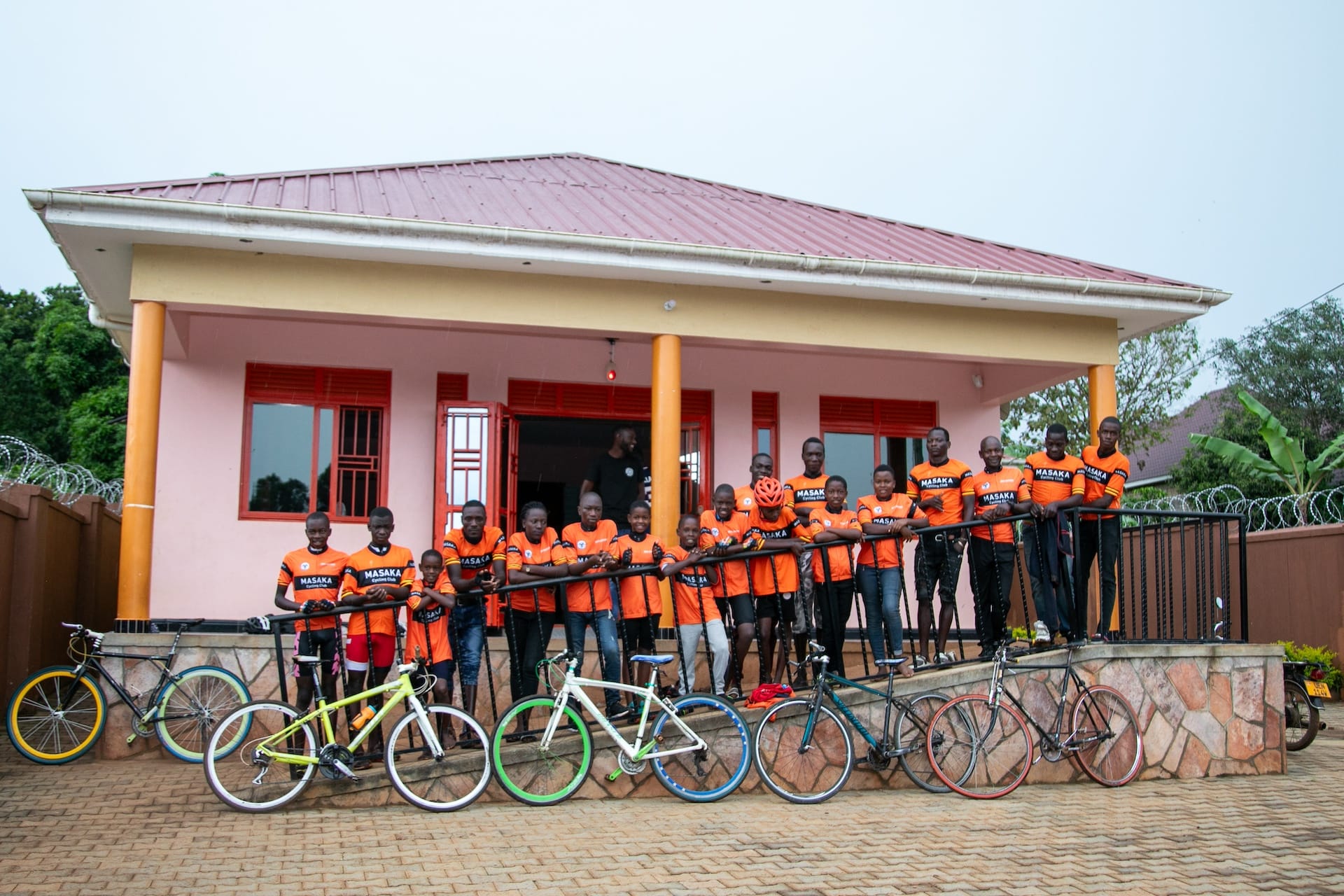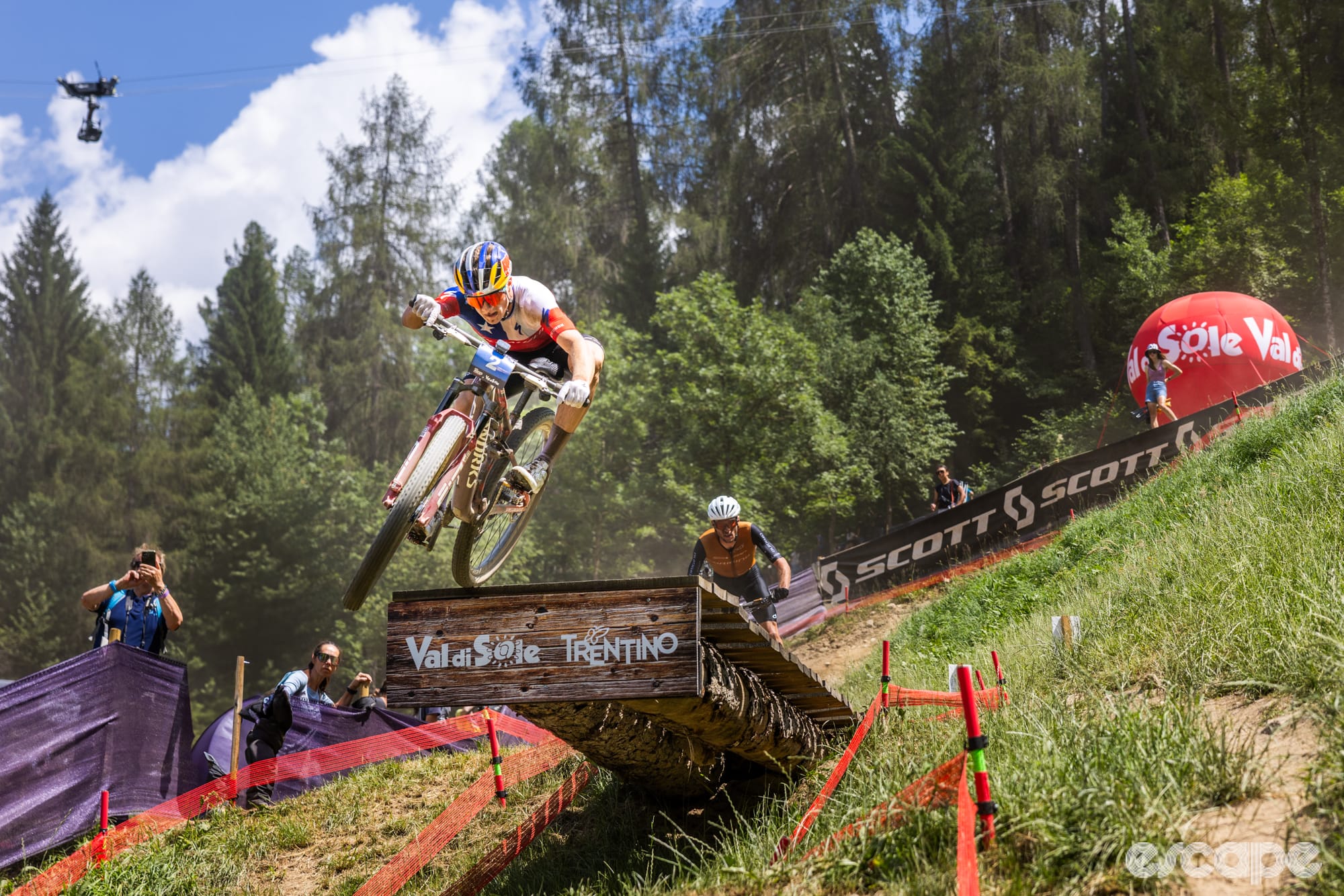Payson McElveen has been testing and providing feedback on the Able redesign for the past year and debuted his race bike at Sea Otter's Lifetime GP gravel race last weekend. Unfortunately, the event was cut short for Payson as he crashed during the first of three 30-mile laps, injuring his leg and arm badly enough to require a trip to the hospital. Even so, he was willing to show us his race rig and offer an overview of Allied's newest addition.
Gravel tires are getting huge, yet only a handful of frames can match the trend. With many racers running light casing cross country MTB models between 2.0" and 2.3" wide in recent seasons, bike manufacturers are seemingly hustling to keep up. The full benefits of higher volume tires are still being evaluated in terms of speed and efficiency, but it seems most people agree they offer enhanced puncture protection and leave riders feeling less fatigued after many hours in the saddle riding rough terrain.
While the original Allied Able could only fit a 45 mm tire, the new one maxes out at 2.25" (57 mm) to, according to the brand, "confidently tackle everything from fast, smooth dirt roads to rugged rock gardens." It's also the bike that's been teased for about a year underneath Allied athlete Payson McElveen throughout his 2024 gravel season.

As seen here, this is not the exact setup Payson was racing at Sea Otter GP. He had a different tire selection due to the fast and hardpack conditions throughout the Fort Ord race course. This is, however, how he'll set it up for the remainder of the Grand Prix circuit at Unbound, Steamboat, etc. For those races, his go-to tire is the Maxxis Aspen ST with 170 TPI casing mounted to ZIPP 303 Firecrest at 19 PSI front and rear.

The tires he did use at Sea Otter were a Maxxis Maxxlite 29 in 2.0" width. A tire discontinued years ago. Payson found a stock of them online and bought a bunch, so he'd have them when race courses are running dry and fast. The Maxxlite was sold as a lightweight short track XC tire with soft casing, which Payson pointed out was actually used by Geoff Kabush to win a Sea Otter XC race over a decade ago. Because this new Sea Otter course included 30% of "race critical" pavement, McElveen reached for something narrower than his go-to 2.25" Aspen ST.
Did we do a good job with this story?

